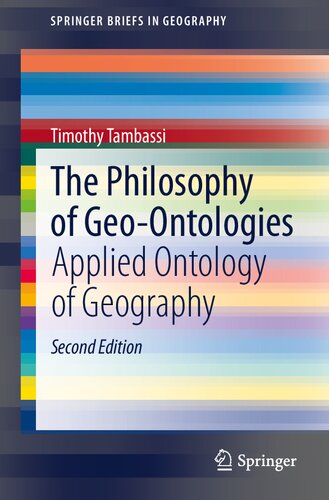

Most ebook files are in PDF format, so you can easily read them using various software such as Foxit Reader or directly on the Google Chrome browser.
Some ebook files are released by publishers in other formats such as .awz, .mobi, .epub, .fb2, etc. You may need to install specific software to read these formats on mobile/PC, such as Calibre.
Please read the tutorial at this link: https://ebookbell.com/faq
We offer FREE conversion to the popular formats you request; however, this may take some time. Therefore, right after payment, please email us, and we will try to provide the service as quickly as possible.
For some exceptional file formats or broken links (if any), please refrain from opening any disputes. Instead, email us first, and we will try to assist within a maximum of 6 hours.
EbookBell Team

4.7
46 reviewsPlaced at the intersection among philosophy, geography, and computer science, the domain of investigation of applied ontology of geography ranges from making explicit assumptions and commitments of geography as a discipline, to the theoretical and technical needs of geographical/IT tools, such as GIS and geo-ontologies. Such a domain of investigation represents the central topic of discussion of this book, which intends: 1) to provide an overview of the mutual interactions among the disciplines encompassed in the domain; 2) to discuss notions such as spatial representation, boundaries, and geographical entities that constitute the main focus of the (philosophical) ontology of geography; 3) to propose a geographical classification of geo-ontologies in response to their increasing diffusion within the contemporary debate, as well as to show what ontological categories best systematize their contents. The second edition of the book differs from the first one as it offers a broader analysis of the (philosophical) ontology of geography: an analysis that is no more limited to the theoretical need of geo-ontologies.